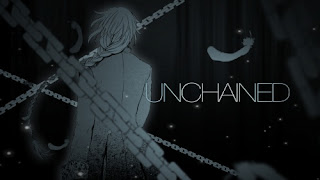One of the nominations for best use of lip-syncing for 2009 at www.animemusicvideos.org. Certainly one I'd vote for, it's a rather funny video and has already been awarded best comedy, in a previous constest. A good selection of scenes from various anime, song by Avenue Q.
Song: Au Revoir Simone - Tell Me (Clock Opera Remix)
Anime: Guilty Crown, Chaos; Head, Durarara!!, To Aru Kagaku no Railgun, Black Rock Shooter, Code Geass, Bakuman, Kamisama no Memo-chou, Melancholy of Haruhi Suzumiya
Editor: Hunter103 Download [ Torrent ]
Watch On Youtube
Schadenfreude
Literary Usage and Philosophical Analysis
The Book of Proverbs mentions an emotion similar to that now described by the word schadenfreude: "Rejoice not when thine enemy falleth, and let not thine heart be glad when he stumbleth: Lest the LORD see it, and it displease him, and he turn away his wrath from him." (Proverbs 24:17-18, King James Version).In the Nicomachean Ethics, Aristotle used the term epikhairekakia (alternatively epikairekakia; ἐπιχαιρεκακία in Greek) as part of a triad of terms, in which epikhairekakia stands as the opposite of phthonos, and nemesis occupies the mean. Nemesis is "a painful response to another's undeserved good fortune," while phthonos is "a painful response to any good fortune," deserved or not. The epikhairekakos person actually takes pleasure in another's ill fortune.[17][18]
During the 17th century, Robert Burton wrote in his work The Anatomy of Melancholy, "Out of these two [the concupiscible and irascible powers] arise those mixed affections and passions of anger, which is a desire of revenge; hatred, which is inveterate anger; zeal, which is offended with him who hurts that he loves; and ἐπιχαιρεκακία, a compound affection of joy and hate, when we rejoice at other men's mischief, and are grieved at their prosperity; pride, self-love, emulation, envy, shame, &c., of which elsewhere."
Susan Sontag's book "Regarding the Pain of Others", published in 2003, is a study of the issue of how the pain/misfortune of some affects others, namely whether war photography and war paintings can be helpful as anti-war tools or if they only serve some sense of schadenfreude in some viewers.
Philosopher and sociologist Theodor Adorno defined schadenfreude as “largely unanticipated delight in the suffering of another which is cognized as trivial and/or appropriate.”
Scientific Studies
A New York Times article in 2002 cited a number of scientific studies of schadenfreude, which it defined as "delighting in others' misfortune." Many such studies are based on social comparison theory, the idea that when people around us have bad luck, we look better to ourselves. Other researchers have found that people with low self-esteem are more likely to feel schadenfreude than are people who have high self-esteem.A 2006 experiment suggests that men, but not women, enjoy seeing bad people suffer. The study was designed to measure empathy, by watching which brain centers are stimulated when subjects inside an fMRI observe someone having a painful experience. Researchers expected that the brain's empathy center would show more stimulation when those seen as good got an electric shock than they would if the shock was given to someone the subject had reason to consider bad. This was indeed the case, but for male subjects the brain's pleasure centers also lit up when someone else got a shock that the male thought was well-deserved.
Brain-scanning studies show that schadenfreude is correlated with envy. Strong feelings of envy activated physical pain nodes in the brain's dorsal anterior cingulate cortex; the brain's reward centers (e.g. the ventral striatum) were activated by news that the people envied had suffered misfortune. The magnitude of the brain's schadenfreude response could even be predicted from the strength of the previous envy response.
A 2009 study indicates that the hormone-like chemical called oxytocin may be involved in the feeling of shadenfreude. In that study, it was reported that when participants in a game of chance were pitted against a player they considered arrogant, inhaling oxytocin through the nose enhanced their feelings of schadenfreude when their opponent lost as well as their feelings of envy when their opponent won.





